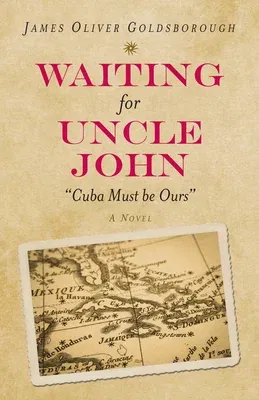How long has the United States been trying to get its hands on Cuba?
Waiting for Uncle John, an exciting and fast paced historical novel,
tells the story of how a few regiments of soldiers, armed and supported
by leading American politicians, set out to capture Cuba from Spain in
1851, the first of various attempts over two centuries to seize control
of the island that has bedeviled American life back to Thomas Jefferson.
A story of love, adventure and politics, Uncle John reflects the
turbulence of the 1850s in America, the crucial years leading up to the
Civil War. Colonel Will Crittenden, nephew of Attorney General John J.
Crittenden, a Kentucky Unionist, wants nothing to do with the plan to
annex Cuba and its quarter million slaves. A West Point graduate,
decorated veteran of the Mexican War and bearer of a famous political
name, Will Crittenden resists the various entreaties politicians make to
convince him to lead their illegal expedition. But the beautiful and
exotic Lucy Holcombe is a tougher adversary. "Tall and good-looking,"
Lucy writes of her love affair with Will, "with cold, quiet manner and
large commanding eyes - a perfect prince of knowledge, at whose feet I
would sit with timid wonder and love." Her novel, Free Flag of Cuba,
becomes the antidote to Uncle Tom's Cabin, regarded in the South as
slander. Lucy goes on to become the "queen of the South," her picture on
Confederate banknotes. Well-armed, sailing on a steamer purchased with
money raised across the country from Americans believing in "Manifest
Destiny," five hundred soldiers set out from New Orleans in the summer
of 1851 under Narciso Lopez, a rebel Spanish general. Nothing is secret.
For months, U.S. newspapers, more jingoistic even than Congress after
the U.S. victory in the Mexican War, have been beating the drums. By
what right dare Cuba defy the United States? Next stop in Manifest
Destiny: Havana. Nothing has changed.

